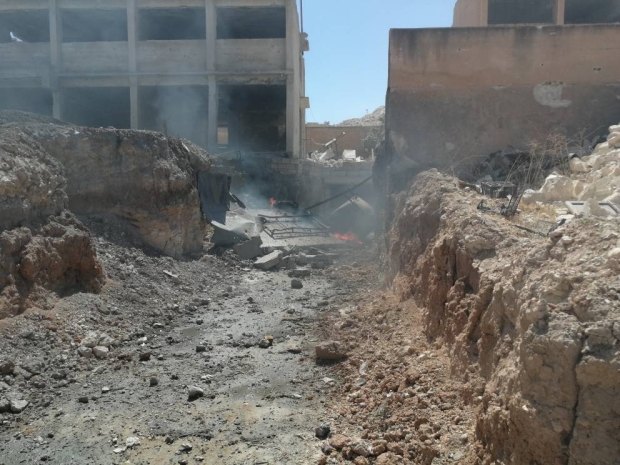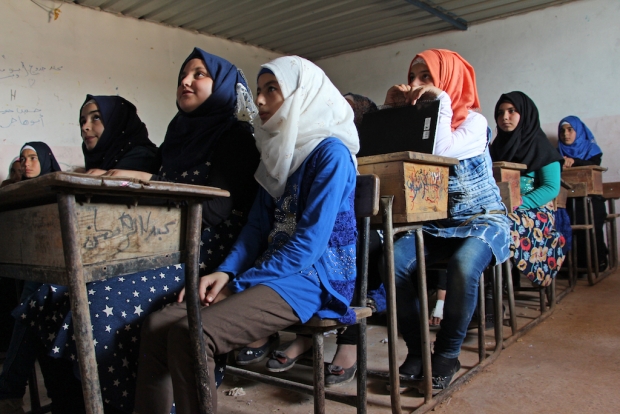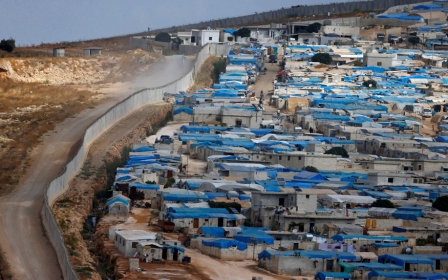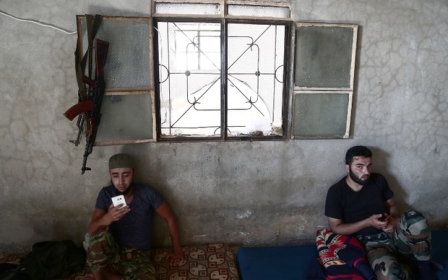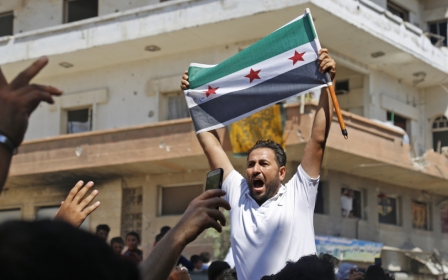Fear and flight in Idlib as prospect of offensive hangs over new school year
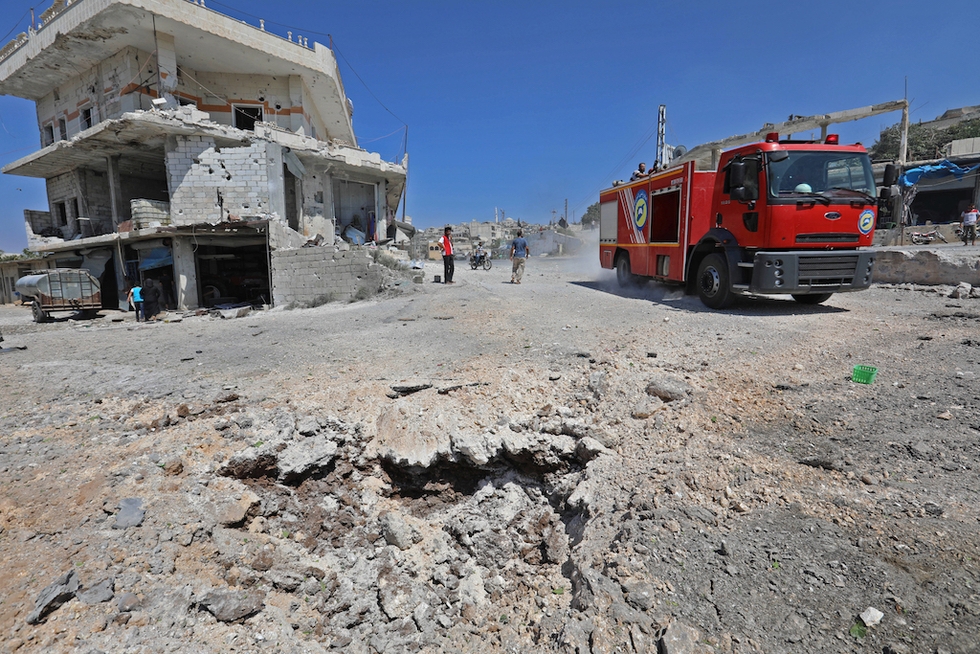
GAZIANTEP, Turkey - Hundreds of people have begun to flee from villages near the frontline in Syria's Idlib province as locals brace themselves for an assault by Bashar al-Assad's forces and his allies.
According to the Syrian Observatory for Human Rights, "around 180 families, or some 1,000 people" had fled from villages in the southeast of the province, near territory held by the government.
On Wednesday, Russia carried out its first air strikes on rebel forces in the northwestern province in three weeks, as pro-government fighters have massed at the borders. Thirteen civilians were killed in the strikes, said the pro-opposition monitor.
The UN has expressed fears that a government offensive on Idlib, the last rebel-held territory in Syria, could lead to the displacement of as many as 800,000 people.
UN Syria envoy Staffan de Mistura has called on the major powers to intervene to prevent a "bloodbath", while Turkish President Recep Tayyip Erdogan warned on Wednesday that a "serious massacre" was at risk of taking place in Idlib if it were targeted by government bombardment.
This morning, a rescue centre run by the White Helmets organisation in the town of Altmanah was bombed out of commission by the Syrian air force. Altmanah is in the countryside, south of Idlib town. Sources there sent Middle East Eye pictures of the damage. The White Helmets then posted photos of the damage online.
Masoud Meryame, a 37 year-old man who has lived in Idlib city since March this year after fleeing the eastern Ghouta region with his family, told Middle East Eye that escape had become a normal part of his life.
"I have spent my last years crumbling from one place to another, running away from the intense clashes and bombardment - I feel that it became part of myself or my daily routine and it feels awkward not to be under such circumstances," he said.
I want to live like those I see on TV playing in the school yard with no fears, studying, having electricity all day and living normal live, I wish this happens one day
- Nasme Ashe, Idlib student
Turkey, Iran and Russia are due to meet in Tehran on Friday to discuss the situation in Idlib. All three countries have agreed on the need to try and dislodge Hay'at Tahrir al-Sham (HTS), the former al-Qaeda affiliate that controls most of Idlib, from the province.
However, while Turkey has been pushing to work with other rebel groups to achieve this, Russia has repeatedly indicated that it regards all the armed groups in the province as "terrorists".
Turkey, which already hosts more than 3 million Syrian refugees, is worried about taking on another influx from the country if Idlib is attacked, as domestic resentment against refugees in Turkey continues to rise.
More than 350,000 people have been killed since protests against Assad's rule were met with violence in 2011.
The looming threat to Idlib comes as children prepare to return to school, an element of day-to-day life that has somehow been maintained despite air strikes and the squeezing of resources in the province.
Essam Al-Khateb, executive director of the Kesh Malek civil society organisation - which runs 30 schools around northern Syria - said that although recent bombings by pro-government forces had not forced the closure of the schools, he was worried about the impact of further escalation.
''The new school year has just begun and we are afraid that in this year also will be forced to halt the educational process because we don't have safe places to hide students during the attacks," he told MEE from Gaziantep in southeastern Turkey.
Khateb said that if there was a major assault they wouldn't "risk student's lives assembling them at school, which is a number one target for the regime and Russia."
The war in Syria has raised concerns about a "lost generation" both inside Syria and in the refugee camps that now house the millions of Syrians who were forced to flee the devastation in their country.
Returning to school in the northern Idlib town of Maarat al-Numan, 15-year old Nasme Ashe said that repeatedly escaping from one bombarded rebel enclave to another had seriously interfered with her education.
"I should be in ninth grade [Year 10] now, but because of the attacks and war since 2011, I stopped going to school each year for many months, and in between 2011 and 2013 I couldn't go to school because of the siege and schools were all closed in eastern Ghouta back then.
''I want to live like those I see on TV playing in the school yard with no fears, studying, having electricity all day and living normal live. I wish this happens one day."
In a statement on Thursday, Save The Children warned that an offensive on Idlib would inflict further harm on Syrian children who were already suffering trauma and anxiety as a result of repeated attacks.
They called on the parties involved in the conflict to make sure that "schools, hospitals and other civilian spaces" were not targeted in the assault and to "do everything in their power to protect children."
Despite the fears, Meryame, the 37-year old living in Idlib city, said that although he expected an escalation in the air strikes, he didn't believe there would be a ground assault from government forces, as there had been in eastern Ghouta and Aleppo in previous years.
"It's not the same here, especially in terms of number of people, Free Syrian Army forces and high potential causalities, thus it's unlikely to occur, and what is happening in the news is just a fuss that will end soon," he said.
New MEE newsletter: Jerusalem Dispatch
Sign up to get the latest insights and analysis on Israel-Palestine, alongside Turkey Unpacked and other MEE newsletters
Middle East Eye delivers independent and unrivalled coverage and analysis of the Middle East, North Africa and beyond. To learn more about republishing this content and the associated fees, please fill out this form. More about MEE can be found here.


